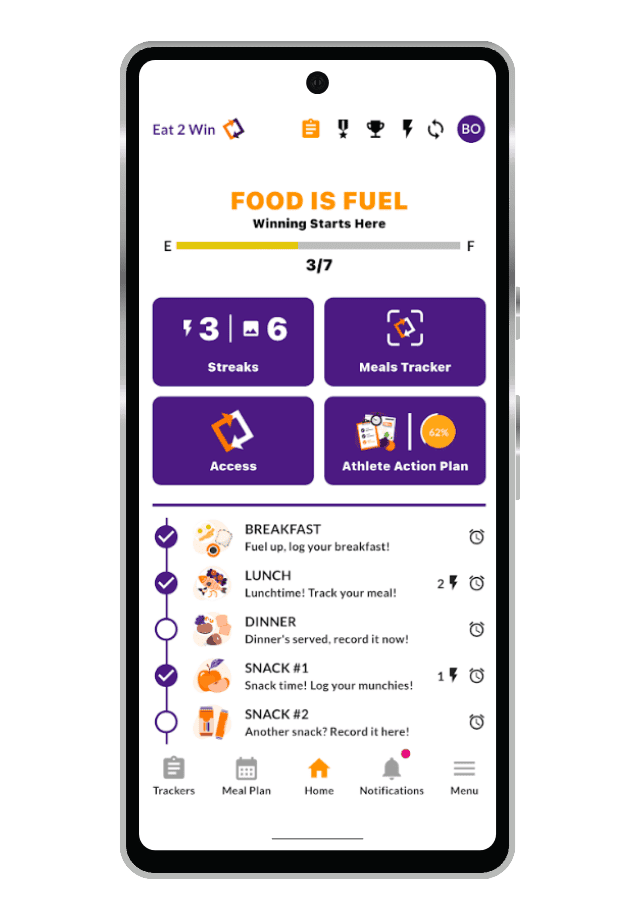Next Level Podcast with Host Tavis Piattoly, MS, RD, LD
- decreaseinflammationmp3-converted00:00

Sharon Collison, MS, RDN, LDN, CSSD
A registered dietitian in private practice and at the Department of Behavioral Health and Nutrition at the University of Delaware.
In this podcast, Sharon Collison will discuss what inflammation is, how to reduce inflammation with diet, which foods are anti-inflammatory, and how to enhance immunity in the athletic population.
Sharon Collison is a registered dietitian in private practice and at the Department of Behavioral Health and Nutrition at the University of Delaware. Sharon completed her B.S. degree in Food Science and her M.S. degree in Human Nutrition with a concentration in exercise physiology at the University of Delaware. She has been a board-certified sports dietitian since 2008, providing sports nutrition guidance to middle-school, high-school, collegiate, amateur, and elite athletes. She is a sports nutrition consultant at Wilmington University. In her spare time, Sharon enjoys developing recipes and entering cooking contests. She won $100,000 in the Southern Living Cookoff in 2005 for her chocolate coffee cheesecake with mocha sauce. Sharon also enjoys biking, hiking, running and strength training. She lives in Newark, DE with her husband and 2 daughters.
In this podcast you will learn:
1. How Sharon's interest on the topic of inflammation begin?
2. An overview of inflammation?
3. Where does inflammation occur?
4. Is inflammation common in athletes?
5. What are the primary causes of inflammation?
6. How does exercise training affect the inflammatory process?
7. What are common markers of inflammation you look for when assessing an athlete?
8. What are types of foods may reduce inflammation?
Podcast Transcript
0:19 Welcome by Tavis Piattoly
- How does inflammation apply to the athlete population?
- Can nutrition affect the recovery process?
1:32 Introduction to Sharon Collison
3:31 How Sharon's interest on the topic of inflammation began?
- I spoke at a sports medicine symposium on the benefits of tart cherry juice as an anti-inflammatory agent.
- Then I was asked to write articles on tart cherry juice, curcumin and probiotics and their effects on the inflammatory process.
- I developed more and more of an interest while doing the research for the articles.
- I read more and more studies that show the benefits of diet on inflammation.
4:14 An overview of inflammation?
- Inflammation is the body’s response to infection or injury.
- Acute inflammation is the body’s short term response to infection or injury.
- Symptoms: redness, swelling and pain
- Chronic inflammation is a whole body prolonged inflammatory response.
- Affects certain disease states: hypertension, diabetes, RA, CVD, Alzheimer's disease and aging.
5:46 Where does inflammation occur?
- When an acute injury occurs to a particular area of the body, the body’s response is to increase inflammation to allow the injury to heal.
- So some inflammation is good, but inflammation for too long is not good.
6:05 Is inflammation common in athletes?
- Inflammation in athletes is very common.
- High intensity or moderate intensity exercise that are for a long duration are more likely to result in an inflammatory response.
- Symptoms: Muscle damage, fatigue, soreness, swelling
- Will impact the athlete’s ability to train.
- Intense exercise results in oxidative stress (an imbalance between free radicals and the body’s antioxidant defense system, to take care of the free radicals).
- Small increase in chronic inflammation can decrease the ability of an athlete to build muscle. Not what an athlete wants!
7:30 What are the primary causes of inflammation? How does exercise training affect the inflammatory process?
- Intense strength training programs where eccentric exercises are emphasized (contracting muscles are forcibly lengthened), there is a likely result of delayed onset muscle soreness (DOMS).
- DOMS is a combination of muscle pain and stiffness occurring several hours after any unaccustomed exercise, particularly when the eccentric exercise is involved.
- The mechanical stress caused by eccentric exercise results in an inflammatory response and production of oxidative stress. The inflammation and oxidative stress eventually overcomes the antioxidant capacity of the body.
- Results in muscle injury and DOMS.
- DOMS limits the ability for an athlete to train for several days or longer.
9:20 What are common markers of inflammation you look for when assessing an athlete?
- You can measure blood levels of inflammatory mediators
- CRP, interleukin-6, creatine kinase
- When I meet with clients, I ask questions:
- Perceived energy levels during exercise?
- How well do they feel they recover?
- Athletes who are sick or injured frequently can benefit from dietary changes that will reduce inflammation and enhance immunity
10:30 What types of foods may reduce inflammation?
- Anti-inflammatory diet
- Tart cherry juice
- Decreases inflammatory markers in athletes with muscle damage, such as from eccentric exercises.
- Athletes have less pain and a sooner return of muscle strength
- Foods that increase inflammation and delay recovery:
- High fat diets: high in Omega-6 fats and low in Omega-3 fatty acids will compromise an athlete’s recovery.
- Omega-6 fatty acids increase inflammation in the body
- Soybean oil and processed foods
- NO fried chicken and french fries!
- Omega-3 fatty acids decrease inflammation in the body
- Salmon, tuna, walnuts, flax and chia seeds
- Adequate sleep and rest days for athletes are critical
- Important and effective ways for athletes to recover faster from training.
- Increases the ability to achieve their exercise performance goals.
14:20 Case Study: Nutritional recommendations for an athlete recovering from shoulder surgery
- Surgery creates a hypermetabolic state where calorie and protein needs are increased
- Post surgery: high calorie and protein needs to support recovery
- Inadequate intake of calorie and protein needs can delay healing
- Emphasize high quality protein sources, whole grains, fruits and vegetables, healthy fats
- High quality proteins are high in essential amino acids, especially branched chain amino acids
- Chicken, fish, cottage cheese, eggs and beef
- Smaller portions
- Nutrients that promote tissue repair, bone health and immunity function
- Vitamin A, C and D
- Calcium, zinc and iron
- Dietary recommendations for other types of injuries are similar during the rehab phase
- Protein, fat and carbohydrate are athlete specific based on type of sport, intensity of exercise and size of athlete.
16:47 Are there any science based dietary supplements to decrease inflammation?
- I always tell my athletes: food first, supplement second
- Supplements will not help an athlete if their diet is inadequate.
- Fish oil
- Currently there are no clear recommendations for fish oil; the data is conflicting.
- Increase foods high in Omega-3 fatty acids
- Turmeric, ginger, curcumin, cinnamon
- I encourage increasing spices in the diet to decrease inflammation.
- Studies support it.
- Bromelain
- Mixture of enzymes that digest protein
- Pineapples: has been used to treat indigestion and reduce inflammation
- Shown potential as a supplement to modulate the eccentric exercise damage
- Studies are mixed, but there is enough in the literature to support further research into the effects of bromelain supplementation on recovery and exercise performance in endurance athletes.
19:36 What else will help with inflammation?
- Probiotics
- Regular consumption of probiotics can change the population of the gut microflora which will influence immune function
- Greek yogurt, kefir, kimchi, sauerkraut, miso, tempeh, kombucha
20:33 Creatine after an injury?
- Some studies show creatine supports maintenance of muscle protein synthesis during injury.
- I encourage injured athletes to first increase their dietary intake
- Beef, fish and chicken
- Be careful! Not a banned substance but dietary supplements are not regulated by the FDA.
21:38 Sharon talks about her new book: Nutrition Strategies to Decrease Inflammation and Enhance Immunity for the Athlete
- General sports nutrition books lack information on this topic
- Research is new: new studies come out everyday
- I hope it’s a resource for athletic trainers, physical therapists and dietitians who work with athletic populations
22:37 What are some topics that are discussed in your book?
- The basics of how the immune system works
- I discuss what inflammation is and how it increases with exercise
- Studies that evaluate different foods and supplements on the inflammatory and recovery process
- Practical information with dietary recommendations
- I provide sample diets for athletes with different caloric needs.
23:20 Where you can purchase Sharon’s ebook
Eat 2 Win Nutrition App
Fuel the Champion Within
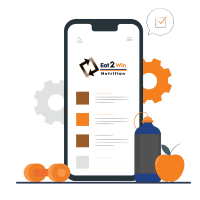
Trackers
Stay on target with cutting-edge trackers that monitor every step of your journey, ensuring you never miss a beat.
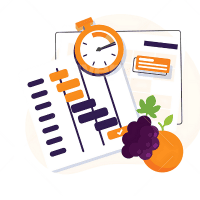
Meal Plan Guides
Simplify your nutrition with easy-to-follow, personalized meal plans that fuel your performance.
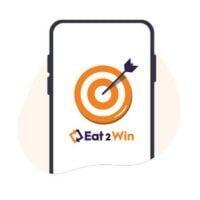
Gamification
Stay motivated and engaged by earning rewards and climbing leaderboards as you hit your fitness and nutrition goals.

Access a Sports Dietitian
Get expert guidance and personalized support from a certified Sports Dietitian whenever you need it.
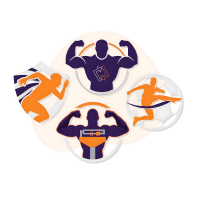
Personalized Programs
Unlock your full potential with personalized programs meticulously crafted to match your unique lifestyle and fitness aspirations.

